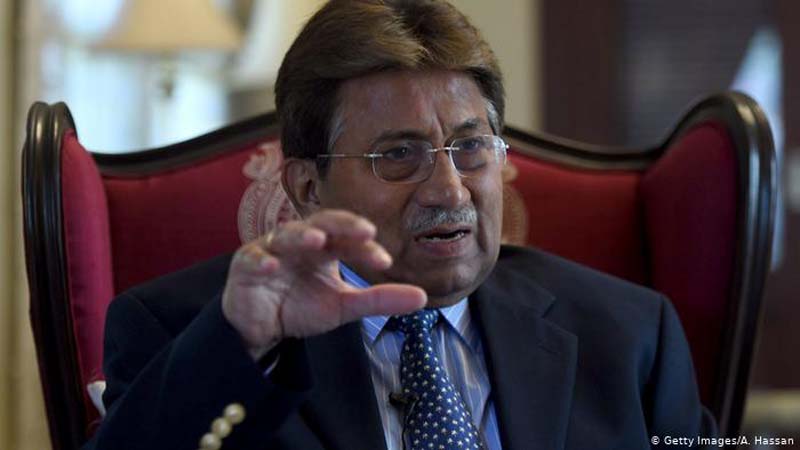ISLAMABAD, Dec 17: Pakistan’s former dictator General Pervez Musharraf was today sentenced to death in absentia in the high treason case for subverting the Constitution in 2007, becoming the first military ruler to receive the capital punishment in the country’s history.
A three-member bench of the special court, headed by Peshawar High Court Chief Justice Waqar Ahmad Seth, pronounced the verdict in the landmark case launched in 2013 against the former Pakistan Army chief by the previous Government of former Prime Minister Nawaz Sharif.
The court found the ailing 76-year-old ex-president, now living in Dubai on self-exile, guilty of high treason by abrogating the Constitution and imposing extra-Constitutional emergency in Pakistan in November 2007 and handed him the death sentence.
He also imprisoned several Judges and issued provisional Constitutional orders to safeguard his dictatorship. He was convicted in 2014 but later went to Dubai in 2016, stalling the progress in the high-profile case.
Musharraf is the first military ruler convicted for subverting the Constitution. Though he was not the first General to do so. Three Pakistan Army chiefs including Gen Ayub Khan, Gen Yahya Khan and Gen Zia-ul-Haq also abrogated the Constitution but never faced any court.
Musharraf’s sentencing is highly significant moment in Pakistan where the powerful military has ruled the country for nearly half of its 72-year history.
Justice Seth, in a short verdict, announced that the court found that Musharraf was guilty of violating Article 6 of the Constitution that says that suspending the Constitution was an act of treason.
“Any person who abrogates or subverts or suspends or hold in abeyance, or attempts or conspires to abrogate or subvert or suspend or hold in abeyance the Constitution by use of force or show force or by any other unconstitutional means shall be guilty of high treason,” states Article 6.
According to the High Treason (Punishment) Act, 1973, the punishment for high treason is death or lifetime imprisonment.
The tribunal issued 2-1 split verdict in the case which lingered on about six years. It said that the detailed judgement would be issued in about two days.
Musharraf can file appeal against the judgment within 30 days. But he would have to return to Pakistan for it unless allowed by the higher court.
According to media reports, Musharraf, who is undergoing treatment in Dubai, expressed regret at the judgment and announced to give detailed response after consulting his lawyers.
Reacting to the judgement, Special Assistant to the Prime Minister on Information, Firdous Ashiq Awan said that government would respond to the judgment on return of Prime Minister Imran Khan from abroad (Switzerland).
“We will see the detailed judgment and give response after Prime Minister comes back,” she told the media.
Musharraf seized power by ousting then-prime minister Nawaz Sharif in a 1999 bloodless coup. He has also served as Pakistan’s president from 2001 to 2008.
Before issuing the verdict, the court rejected a plea by the prosecutors to delay the verdict. (PTI)


